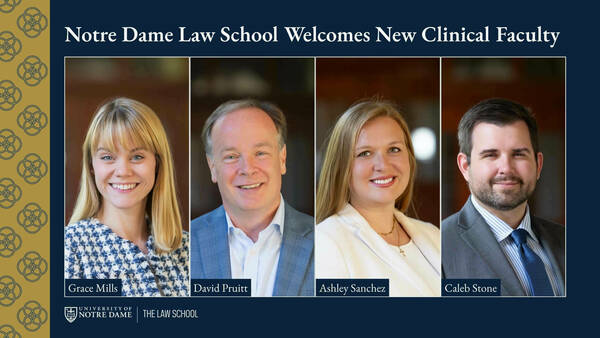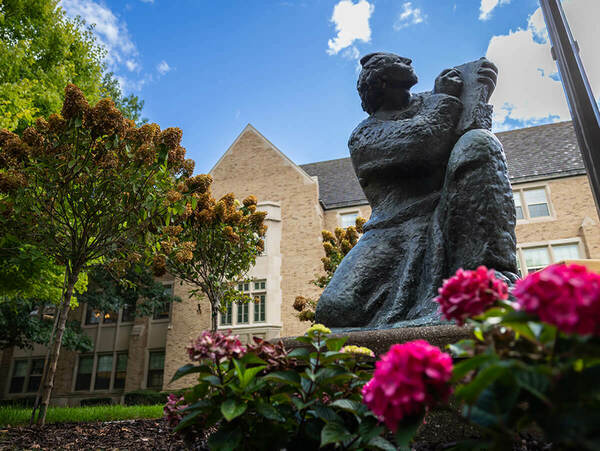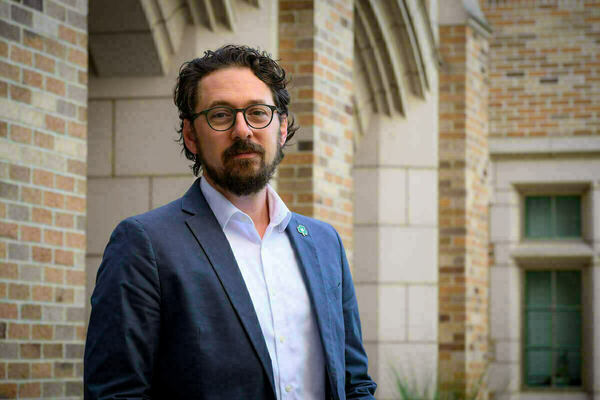Hannah Peckham ’23 and Ph.D. student Ella Hadacek win the History Department's prizes for outstanding scholarship by a graduate student
The History Department has awarded its two prizes for outstanding written work in 2023–24 by a graduate student. Below are the winners and the justification given by the prize committees. (Past Winners)
(1) The John Highbarger Memorial Award for the best doctoral dissertation
Hannah M. Peckham (Pre-Award Program Manager, Notre Dame Research, University of Notre Dame), “American Outposts: Rethinking U.S. Higher Education Abroad, 1908-1972”
“Hannah Peckham’s dissertation is an outstanding piece of historical research and writing. Spanning the greater part of the twentieth century, it traces the growth and transformation of the loose network of American Protestant colleges and universities in Asia and the Middle East. Drawing on a rich base of archival and published sources, Peckham explores how these schools evolved from the eve of the First World War to the 1970s. Overseas, the schools’ campuses were buffeted by two world wars, the communist revolution in China, the Cold War, and decolonization, while at home, the institutions supporting them in the United States confronted profound shifts in religious life, higher education, and the role of government in American society. Founded in the nineteenth century to spread the sectarian religious teachings of diverse Protestant churches, they developed into instruments of US cultural diplomacy in the service of promoting American-style liberal democracy. Peckham’s elegantly written and cogently argued dissertation unpacks this complex history and tells a convincing overarching story about the American university and its role in the modern world.”
(2) The Vincent P. DeSantis Prize for the best unpublished paper
Ella Hadacek, “‘Our Joan of Arc, Margaret Haley’: Gender, Union Busting, and the Fear of Catholic Power in the Loeb Affair, 1915-1917”
“This paper examines the efforts of women teachers in the Chicago Public Schools to Unionize and join the Chicago Federation of Labor at the turn of the last century. The author expertly weaves together the histories of gender, religion, and nineteenth-century Irish immigration to shed light on an old story in surprising and compelling new ways. The paper is based on research in newspapers, and archival records, and deftly integrates this research into a thorough and competent presentation of the views and contributions of other scholars. It is a model piece of work.”
Originally published by at history.nd.edu on October 14, 2024.
Latest Research
- ND research teams awarded funding to address sustainability challenges around the worldNotre Dame's Just Transformations to Sustainability Initiative has awarded funding to three cross-disciplinary faculty teams leading research on pressing sustainability issues—including forest conservation in the Amazon, watershed…
- Fighting to improve hurricane forecastsResearchers at Notre Dame are improving hurricane forecast accuracy, giving officials time to evacuate and protect residents.
- 2025 Naughton Fellowships awarded to four joint faculty projectsThe University of Notre Dame’s Naughton Fellowship program has announced its faculty awardees for the 2025-2026 cohort. Faculty from leading Irish universities and Notre Dame have come together to work on four research projects as a part of the Naughton Faculty…
- Notre Dame Law School Welcomes Four New Clinical Faculty Members for 2025–26Notre Dame Law School is pleased to welcome four new clinical faculty members for the 2025–26 academic year. “It is an honor to welcome such a distinguished group of clinical professors to Notre Dame Law School. Their impressive achievements and deep sense of vocation will enrich our academic…
- Six early-career scholars join the inaugural Provost’s Postdoctoral Fellowship Program.Six interdisciplinary scholars have joined the College of Arts & Letters at the University of Notre Dame to continue their research, obtain invaluable support, and engage in professional development as part of the inaugural Provost’s…
- Politics inspired Democracy Initiative managing director from early ageThis is the first in a series of features highlighting the managing directors of the University's strategic initiatives. The managing directors are key (senior) staff members who work directly with the faculty directors to help implement and operationalize the vision for the initiatives, oversee initiative staff, and serve as thought partners for the faculty directors.










